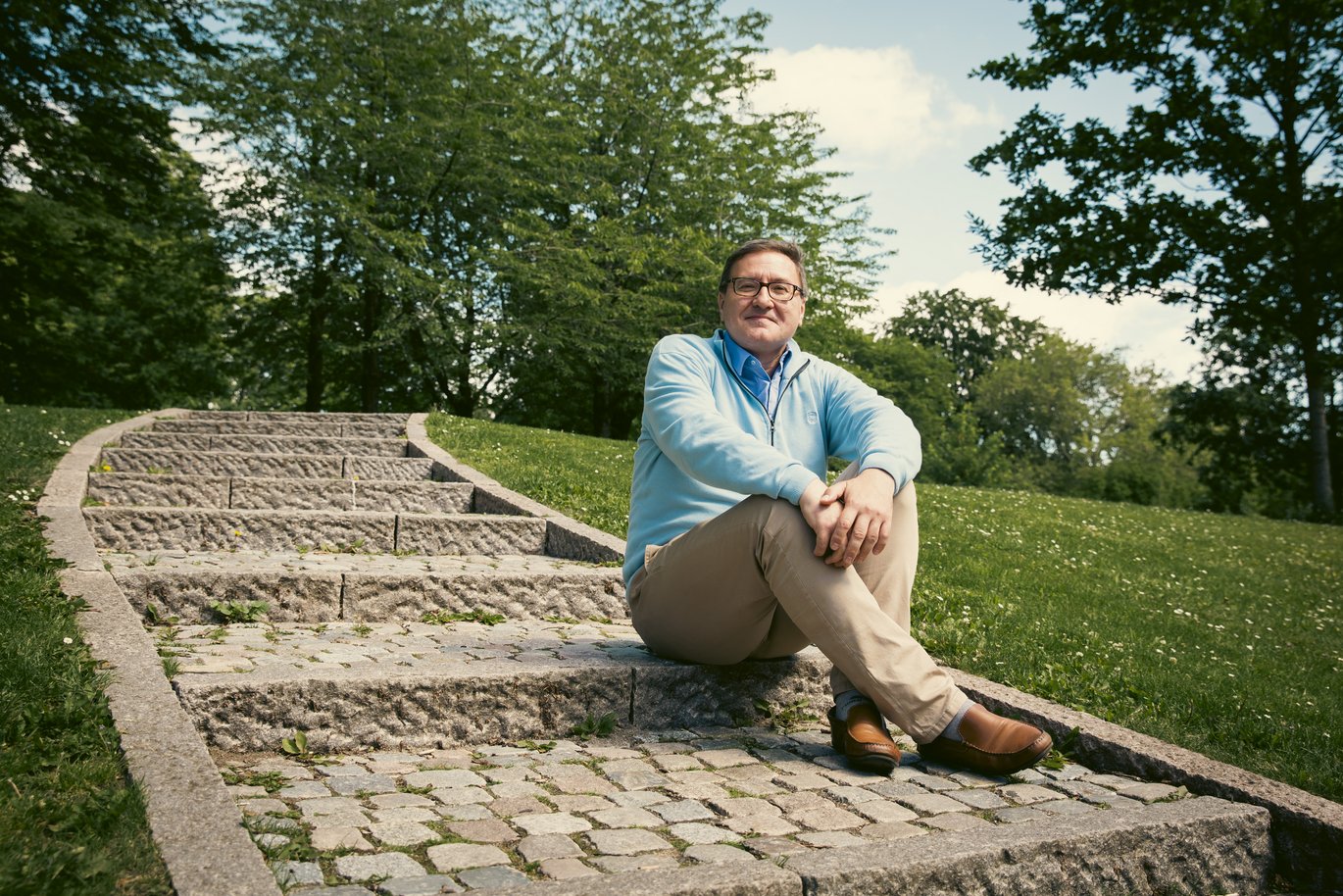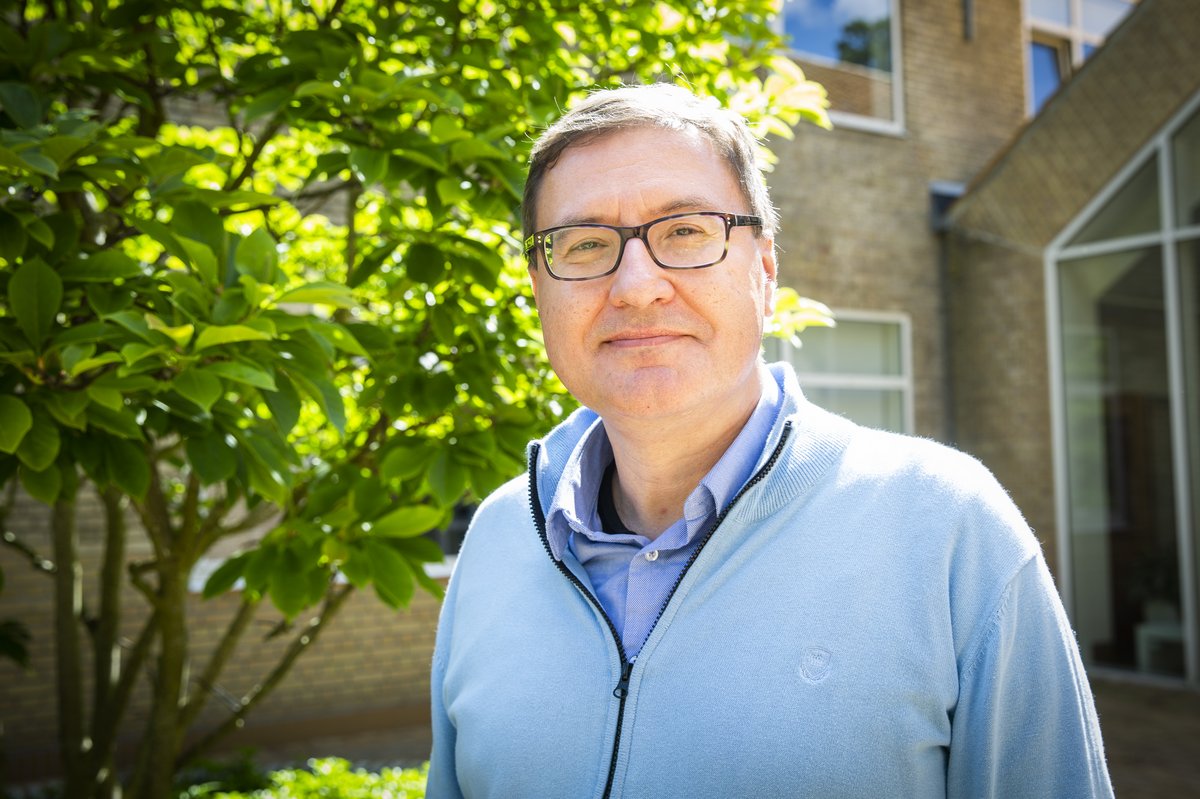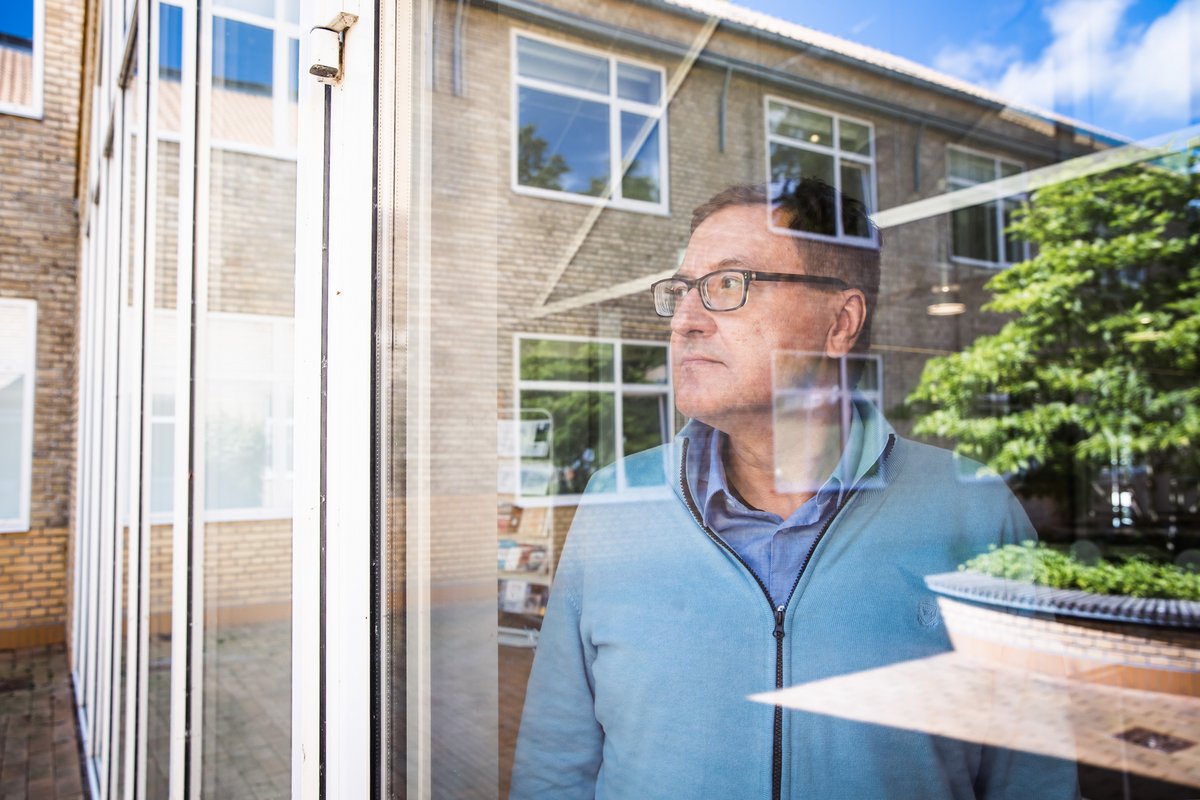“It’s impossible to work when you have to shelter from missiles and bombs in a basement three times a day”
Oleg Yarosh is exempt from military service on medical grounds and was therefore able to leave Ukraine with his family. His wife has been awarded a fellowship in Poland, and he has received a fellowship at AIAS, where he can continue his research on Western Sufism. So the family is scattered across Europe, but they are safe from the war in their home country.

AUFF – UKRAINE FELLOWSHIP ATAIAS
With financial support from the Aarhus University Research Foundation (AUFF), in March this year, Aarhus Institute of Advanced Studies (AIAS) set up a fellowship for researchers from Ukraine who are unable to continue their research or research collaboration as a result of the Russian invasion. The fellowships provide researchers with a full salary and assistance obtaining work and residence permits.
Of the 115 who have applied, 18 have been offered a fellowship. 12 of these researchers have already arrived in Aarhus, and two are on their way.
The researchers were able to choose between a 6-month or a 12-month fellowship.
Oleg Yarosh is associate professor at the Institute of Philosophy of the National Academy of Sciences of Ukraine in Kyiv. He lives with his wife and his youngest daughter in Bucha – the suburb of Kyiv, which was recently brought to the world’s attention for tragic reasons, when, after more than a month-long Russian occupation in March, images of mass graves and murdered civilians in the streets appeared, testifying to Russian assaults on civilians in the town.
Oleg Yarosh and his family got away from the town in time.
“As soon as I heard that the Russians were on their way to Kyiv, I knew we had to go. Because of Bucha’s location close to Antonov Airport in Hostomel, I thought it would be a military target. So I told my wife and my youngest daughter, who is 20 and lives with us, that we had to leave immediately. And we also got hold of my eldest daughter, who lives nearby, and took her with us,” explains Oleg Yarosh.
Air raid sirens several times a day
The family headed for the city of Lviv, which is in the western part of Ukraine, close to the Polish border, where they had family they could stay with. At that time, Lviv was not under as fierce fire as Kyiv and the regions in the east.
“I was not in imminent danger,” says Oleg Yarosh.
Even so, he and his family had to hurry down to the basement several times a day when the air raid siren sounded.
He gets out his mobile phone and plays me the sound of the siren.
“It’s impossible to work when you have to shelter from missiles and bombs in a basement three times a day for hours. We could hear missiles flying over our building, and the Russians use Soviet missiles, which are imprecise,” he says in order to explain his decision to leave Ukraine after staying with relatives in Lviv for a few months.
President Zelensky had issued a ban on Ukrainian men between 18 and 60 leaving the country. But Oleg Yarosh was able to cross the boarder into Poland with his family because he is exempt from military service on medical grounds.
The family in Poland
The family travelled to Warsaw, where Oleg Yarosh’s wife, who is also a researcher and leader of a think tank in Kyiv, received a fellowship. The eldest daughter got a job and the youngest daughter started doing voluntary work in Krakow, until she can begin studying medicine after the summer holiday. Oleg Yarosh had previously applied for a fellowship at Aarhus Institute of Advanced Studies (AIAS), and when the opportunity arose specifically for researchers from Ukraine, he immediately sent an application.
“Aarhus is a good place for me to conduct my research. I have already collaborated with Professor Mark Sedgwick on the topic of Western Sufism (Sufism is an Islamic mysticism or movement that aims to achieve closer ties with God through prayer, meditation, dance and asceticism, ed.) and need to be able to travel to Sweden and Germany to conduct my fieldwork.”
A desire to contribute
Oleg Yarosh has now been given an office at the Department of Arab and Islamic studies at the School of Culture and Society, from where he can carry out his research project. And he hopes that he can also contribute to the department by teaching and giving lectures.
He accepts the fact that this opportunity to immerse himself in his research and to be at a safe distance from the war means that, for a while, he will have to live in a different country from his family.
“It’s not the first time I’m using my academic mobility – I have studied abroad and have also previously been awarded fellowships at universities outside Ukraine. And there is a direct flight connection between Aarhus and Warsaw, so I can be with my family within a couple of hours.”
When asked how he feels about being in safety here in Denmark while his parents and some of his family, friends and colleagues are still in Ukraine – some of whom may play an active part in the fight against the Russian army, he replies:
“I have colleagues who are supporting the military and paramilitary through the voluntary fundraising of money and equipment. And I would like to do something similar.”
At the same time, he expresses his immense gratitude for the opportunity he’s been given at AIAS and in Denmark – also the opportunity to receive medical care in the country.
In Ukraine it’s difficult to get hospital treatment because the hospitals are being used to treat victims of war.”



